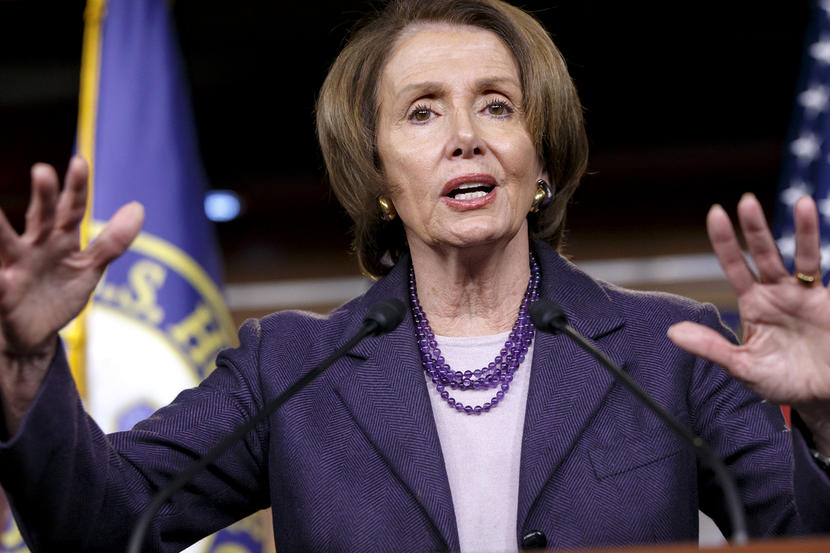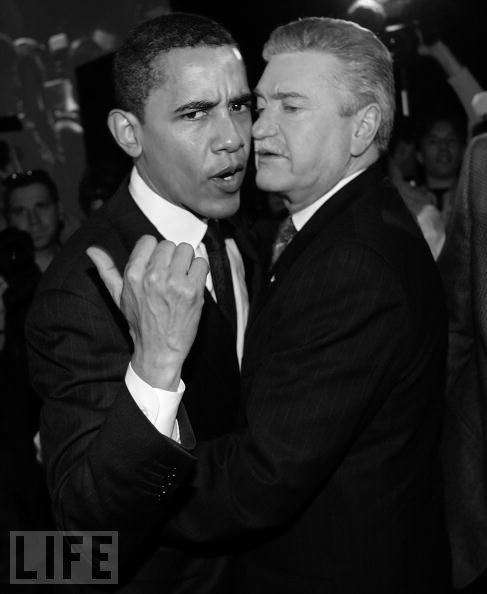Will Team Biden Weaponize Workers’ Pensions?
Big Labor abuse of worker pension and benefit funds as a means of advancing union bosses’ self-aggrandizing policy objectives is a familiar phenomenon.
Public-Safety Employees’ Freedom Under Fire

Will D.C. Politicians Override State Public Sector Labor Laws?
Ever since he assumed control over the International Association of Firefighters (IAFF) union nearly two decades ago, Harold Schaitberger has battled to ram through Congress legislation federally mandating union monopoly-bargaining control over state and local public-safety employees nationwide.
But so far, despite the fact that Mr. Schaitberger and his lieutenants have, without a doubt, successfully exploited their state government-granted monopoly-bargaining privileges to build an extremely powerful electioneering and lobbying machine, the IAFF union hierarchy has yet to achieve its goal.
The key reason for IAFF bosses’ failure to pull off their power grab yet is opposition from well-mobilized National Right to Work Committee members.
In early 2009, at the outset of the presidency of relentless forced-unionism advocate Barack Obama, passage of IAFF bosses’ so-called “Public Safety Employer-Employee Cooperation Act” seemed, to almost everyone, inevitable.
Police, Firefighters Would Be Dragooned Into Unions
In December of the following year, then-Senate Majority Leader Harry Reid (D-Nev.) filed a cloture motion to pave the way for final passage of S.3991, a version of the IAFF scheme he had personally introduced.
It would have denied localities in all 50 states the option to refuse to grant a single union the power to speak for all front-line employees, including those who don’t want to join, in discussions with their employer regarding most conditions of employment.
Union monopoly bargaining would have been foisted on firefighters, police, and other public-safety employees nationwide. And in most states that already authorize public-safety monopoly bargaining, S.3991 would have widened its scope.
But S.3991 stalled in the face of the fierce resistance of Committee members and supporters, who time and again flooded Capitol Hill with letters, postcards, petitions, emails, faxes and phone calls calling on Congress not to federalize public-safety monopoly bargaining.
This was a bitter defeat for Mr. Schaitberger.

In 2019, IAFF kingpins are ready to try again.
With dyed-in-the-wool Big Labor Rep. Nancy Pelosi (D-Calif.) once again calling the shots as speaker, they may confidently anticipate they will not have much trouble getting a 2019 edition of the 2010 Reid bill through the House of Representatives.
In the Senate, IAFF and other government union bosses will attempt, through raw political intimidation, to browbeat enough Republicans to go along with union-label Democrats to ensure congressional passage of a federal public-safety monopoly-bargaining mandate.
Pervasive Government Sector Unionization Linked to Insolvency
“Some time early this year,” predicted Committee Vice President Greg Mourad, “anti-Right to Work Congressman Daniel Kildee [D-Mich.] will introduce a measure that is identical, or nearly identical, to H.R.4846, which he sponsored during the 2017-18 Congress.
“Mr. Kildee’s pet legislation would force countless state and local policemen, firefighters and EMT’s to accept as their monopoly-bargaining agent a union they never voted for, and want nothing to do with.
“It would also constitute a major step towards Big Labor’s decades-old goal of enacting a federal law that hands union bosses monopoly control over front-line state and local employees of all types, including teachers, across America.
“And it would have horrible fiscal ramifications.
“There is a strong correlation between the share of a state’s public employees who are subject to union rule and its indebtedness.”
Mr. Mourad cited “Unaccountable and Unaffordable,” an analysis of state pension plans for the American Legislative Exchange Council (ALEC) that was most recently updated in December 2017.
The data cited by ALEC shows that the seven states with the least responsibly managed state pension systems have an average per capita unfunded pension liability of $30,398, or nearly $12,000 above the national average.
In these seven states, as a group, roughly 52% of public employees are under a union monopoly, compared to 38% nationwide.
Meanwhile, the seven states with the best-managed state pension systems have an average per capita unfunded pension liability of $10,129, or more than $8,400 below the national average. In these seven states, as a group, roughly 23% of public employees are unionized.
Mr. Mourad vowed that Right to Work members and supporters would go all out in 2019 to block passage of the Kildee bill:
“By mobilizing freedom-loving citizens across America, the Committee can once again muster the Capitol Hill support we need to save America from federally mandated union monopoly bargaining.”

Big Labor abuse of worker pension and benefit funds as a means of advancing union bosses’ self-aggrandizing policy objectives is a familiar phenomenon.

Leaked CTU Proposals Won’t Do Anything to Improve Schools’ Poor Performance

What impact does handing a union monopoly power to deal with your employer on matters concerning your pay, benefits, and work rules have on your pay?